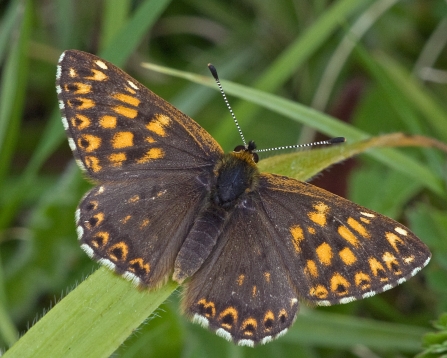There are some simple steps you can take to help hedgehogs:
Create hedgehog highways
Hedgehogs need to be able to roam far and wide in search of food, mates and nesting sites, racking up between 1 and 2km per night. Put a 13cm hole in your fence or dig a channel beneath garden boundaries to connect your gardens.
Avoid the use of pesticides
Ditch the slug pellets and avoid the use of pesticides. Hedgehogs are natural pest controllers and need a plentiful and varied supply of invertebrate prey to stay healthy.
Provide nesting sites
Log and leaf piles, wilderness areas and purpose-built hedgehog homes make great places for hedgehogs to nest and hibernate. Fallen leaves also make a perfect nesting material, so make sure you do not clear all of these away.


